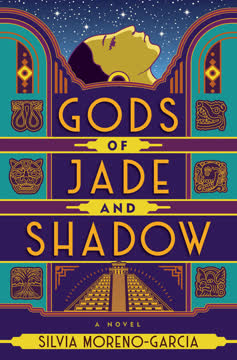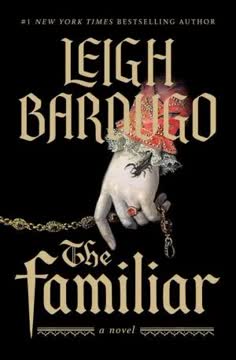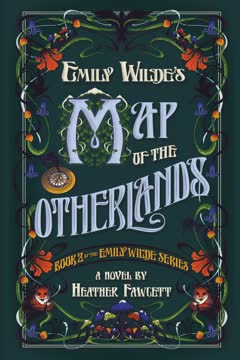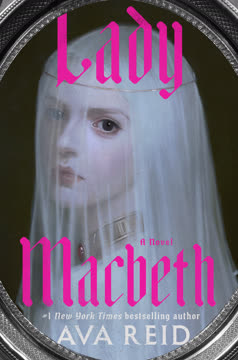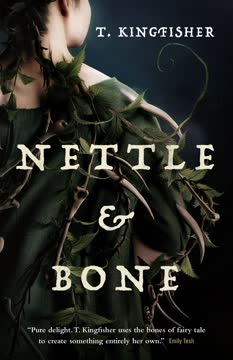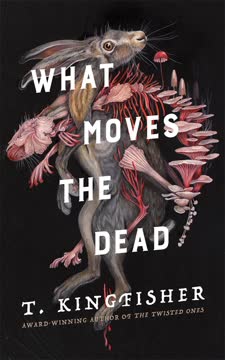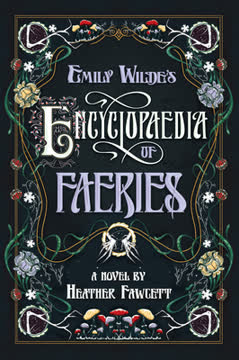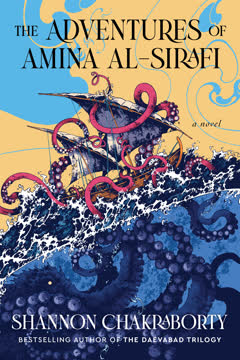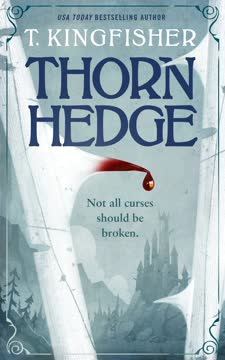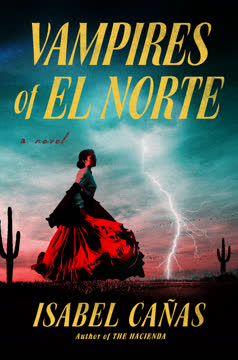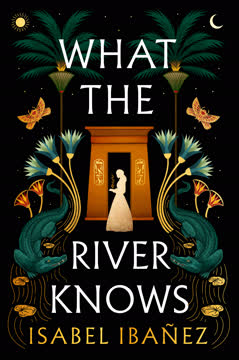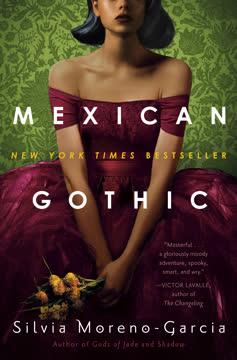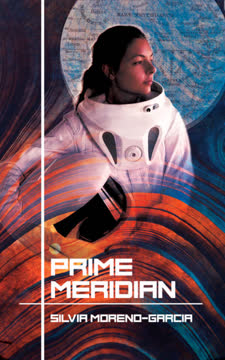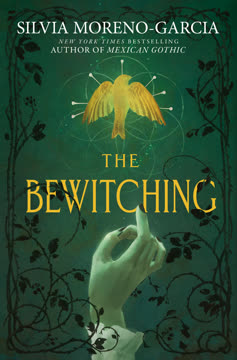Plot Summary
Ashes and Stars
Casiopea Tun, a young woman in 1920s Yucatán, lives under the oppressive rule of her grandfather and the daily cruelty of her cousin Martín. Her dreams are stifled by poverty and family scorn, but she clings to hope, gazing at the stars and longing for freedom. When her grandfather's illness worsens, Casiopea's resentment simmers, and her only solace is the memory of her father's stories and the distant promise of a better life. The world is gray, her future uncertain, but a restless spirit burns within her, waiting for a spark to ignite change.
The Locked Chest Opens
Left alone as punishment, Casiopea discovers her grandfather's mysterious chest and, driven by anger and curiosity, opens it. Instead of gold, she finds bones—then pain, as a shard pierces her thumb. The bones assemble into Hun-Kamé, Lord of Xibalba, god of death, who was betrayed and imprisoned by his brother. Bound by the bone shard, Casiopea's life is now linked to Hun-Kamé's, and she must accompany him to recover his missing parts or perish. The world she knew is shattered; adventure and danger beckon.
Death Walks in Mérida
Casiopea and Hun-Kamé flee to Mérida, where the god's presence is both dazzling and perilous. They seek the demon Loray, who offers information in exchange for a future favor. Casiopea is transformed—bathed, dressed, and thrust into a world of luxury and supernatural intrigue. She learns the cost of her bond: her life drains into Hun-Kamé, making him more human, more vulnerable. The demon warns her of betrayal and the power of free will, planting seeds of doubt and possibility. The journey's stakes become clear: life, death, and the fate of gods.
The Demon's Bargain
Loray reveals the scattered pieces of Hun-Kamé's essence and the dangers ahead. Casiopea is told that, if all hope is lost, she can sever her bond by sacrificing her hand—an act that would doom Hun-Kamé but save herself. The demon's malice is veiled in charm, and Casiopea senses the treacherous currents beneath every offer. Meanwhile, in Xibalba, Vucub-Kamé learns of his brother's escape and enlists Martín as his mortal agent, setting cousin against cousin. The gods' game is in motion, and mortals are the pieces.
Brothers of Shadow
Vucub-Kamé, ruling Xibalba, is haunted by omens and the threat of his brother's return. He manipulates Martín, promising power and demanding loyalty. The brothers' rivalry is ancient, rooted in pride and betrayal. As Hun-Kamé and Casiopea travel, their bond deepens, and the god's humanity grows. In the mortal world, Martín's jealousy and resentment fester, fueling his willingness to serve the death god. The lines between love and hate, loyalty and ambition, blur as the contest for the throne of Xibalba intensifies.
The Road to Veracruz
Casiopea and Hun-Kamé travel by ship to Veracruz, seeking the weather god who holds a piece of Hun-Kamé's power. Their relationship shifts—banter, vulnerability, and the stirrings of affection. Casiopea's courage and wit shine as she navigates new cities and supernatural threats. In Veracruz's Carnival, she becomes bait for the god's cousin, luring him with her newfound allure. The world expands, filled with music, color, and peril, as the quest for wholeness—and survival—continues.
Carnival and Seduction
Amidst the revelry of Carnival, Casiopea seduces and outwits the weather god, retrieving Hun-Kamé's ear. The encounter reveals the power and danger of the gods, and Casiopea glimpses the true face of death. Their bond grows, marked by moments of tenderness and fear. The journey is not just physical but emotional, as Casiopea confronts her own desires and the cost of her choices. The gods' world is seductive and deadly, and every victory comes with a price.
The Price of Magic
In Mexico City, Casiopea must give up her hair to summon ghosts and seek the next piece of Hun-Kamé's essence. The ritual is harrowing, and the ghosts nearly consume her. Each act of magic drains her further, and the bone shard's toll becomes unbearable. Hun-Kamé, now more human than god, struggles with his own changing nature. Their journey is marked by loss—of innocence, of strength, of certainty. The city's glamour cannot mask the shadows gathering around them.
The City of Masks
Casiopea and Hun-Kamé confront Xtabay, a spirit who tempts and ensnares with illusions. Casiopea's will and Hun-Kamé's fading power are tested, but together they break the spell and reclaim another piece of the god's self. Meanwhile, Martín, manipulated by Vucub-Kamé, is trained to walk the shadow roads of Xibalba, preparing for a final contest. The city is a labyrinth of secrets, and every ally may be a traitor. The gods' game tightens, and the cost of failure grows.
The Sorcerer's Trap
In El Paso, Casiopea pays with her blood to find the Uay Chivo, a sorcerer who holds Hun-Kamé's jade necklace. The sorcerer's house is a trap, filled with magical guardians and deadly spells. Casiopea's quick thinking and Hun-Kamé's waning magic allow them to escape, but not without wounds—physical and emotional. The journey west is grueling, and the god's mortality is now undeniable. The endgame approaches, and hope is as fragile as the bond between them.
The Black Road Beckons
In Baja California, at the magical hotel Tierra Blanca, Vucub-Kamé proposes a contest: Casiopea and Martín must race through the Black Road of Xibalba to the World Tree. The winner's god will rule; the loser faces death. Vucub-Kamé tempts Casiopea with an offer: betray Hun-Kamé, and she can live—and love—as a mortal. Hun-Kamé, torn between love and duty, offers her the choice. The road is set, and sacrifice is demanded.
The Contest of Sacrifice
Casiopea and Martín enter Xibalba, each facing nightmares, monsters, and the treacherous shifting of the Black Road. Casiopea's courage and compassion guide her through deadly traps, while Martín is driven by fear and envy. The gods watch, powerless to intervene. The contest is not just of speed but of spirit, and the cost of victory is steep. Casiopea's journey becomes a test of her very self—her memories, her love, her will to live.
The World Tree's Shadow
Near the World Tree, Casiopea, exhausted and lost, faces the ultimate choice: betray Hun-Kamé and live, or sacrifice herself for love and justice. She chooses the knife, pledging herself to Hun-Kamé and slitting her own throat. Her sacrifice awakens the Great Caiman, and the world trembles. In the presence of gods and mortals, Hun-Kamé is restored, Vucub-Kamé is defeated, and the cycle of vengeance is broken. Mercy triumphs over hate.
The Choice of the Heart
Hun-Kamé, now fully a god, offers Casiopea any reward. She asks only for mercy for Martín and the chance to live. Their bond is severed; Hun-Kamé returns to Xibalba, and Casiopea is left in the mortal world, changed and grieving. The love between god and girl lingers—a speck of heart, a field of red flowers in the underworld. The world is remade, not by power, but by sacrifice and forgiveness.
The Return of the King
Hun-Kamé spares his brother, ending the cycle of violence. Casiopea forgives Martín, though not completely, and chooses her own path. The gods' game is over, but the world is changed—Xibalba blooms with new life, and Casiopea, once a servant, is now the master of her fate. The story ends not with a coronation, but with a quiet, human act of kindness.
The Road Beyond
Casiopea, free at last, chooses not to return to her old life. She accepts a ride from Loray, the demon, and sets out to explore the world—driving an automobile, reading maps, and chasing her own dreams. The story of gods and shadows is over, but the story of Casiopea Tun is just beginning. The stars are no longer out of reach.
Characters
Casiopea Tun
Casiopea is the heart of the story—a young woman marked by poverty, family cruelty, and a restless yearning for freedom. Her relationship with her father's memory and her mother's resignation shapes her resilience and skepticism. Psychoanalytically, Casiopea is driven by a deep sense of injustice and a longing for agency; her dreams are both a rebellion and a lifeline. As she journeys with Hun-Kamé, her courage, wit, and compassion grow, transforming her from a servant into a hero. Her love for Hun-Kamé is both a source of strength and vulnerability, and her ultimate sacrifice is an act of self-definition. Casiopea's arc is one of self-actualization—she claims her own story, refusing to be a pawn in anyone's game, mortal or divine.
Hun-Kamé
Hun-Kamé, Lord of Xibalba, is at first a figure of mythic power—proud, beautiful, and remote. Betrayed by his brother, he is forced into a partnership with Casiopea, and her blood makes him increasingly mortal. This transformation is both physical and psychological: he learns empathy, humor, and love, but also fear and doubt. His relationship with Casiopea is a mirror—she awakens his humanity, and he, in turn, helps her realize her worth. Hun-Kamé's struggle is between duty and desire, vengeance and mercy. By the end, he chooses forgiveness over hate, and love over power, breaking the cycle of violence that has defined his existence.
Vucub-Kamé
Vucub-Kamé, Hun-Kamé's twin and rival, is a master of manipulation and prophecy. His desire for power is rooted in a deep sense of inferiority and resentment—he is always the second, the shadow. Psychoanalytically, he embodies the destructive potential of wounded pride and the refusal to accept change. His relationship with Hun-Kamé is both fraternal and adversarial, a dance of love and hate. Vucub-Kamé's arc is tragic: he achieves his goal only to lose everything, and in the end, he is spared by the brother he tried to destroy. His defeat is not just a loss of power, but a confrontation with his own emptiness.
Martín Leyva
Martín is Casiopea's foil—a young man raised in privilege, yet haunted by insecurity and a sense of inadequacy. His cruelty toward Casiopea is a projection of his own self-loathing, and his alliance with Vucub-Kamé is both an act of rebellion and desperation. Psychoanalytically, Martín is trapped in a cycle of resentment and shame, unable to break free until he is brought low by his own failures. His eventual apology to Casiopea is sincere but incomplete—a gesture toward redemption, but not its fulfillment. Martín's journey is a cautionary tale about the dangers of pride and the possibility of change.
Loray
Loray, the Marquess of Arrows, is a supernatural trickster—charming, dangerous, and self-interested. He aids Casiopea and Hun-Kamé, but always with an eye to his own advantage. Loray's role is that of the tempter and the guide, offering bargains and warnings, and embodying the ambiguity of the magical world. He is both friend and foe, and his presence forces Casiopea to confront the limits of trust and the power of choice. Loray's psychological complexity lies in his refusal to be pinned down—he is a survivor, a mythmaker, and a catalyst for change.
Aníbal Zavala / Uay Chivo
Aníbal Zavala, also known as the Uay Chivo, is a mortal who has allied himself with Vucub-Kamé in pursuit of power. He is cunning, ruthless, and ultimately doomed by his own hubris. Zavala's relationship with the gods is transactional—he serves as their agent in the mortal world, but is always aware of his own expendability. Psychoanalytically, Zavala represents the dangers of unchecked ambition and the seduction of forbidden knowledge. His defeat at the hands of Casiopea and Hun-Kamé is both a personal and symbolic victory over the forces of corruption.
Xtabay
Xtabay is a supernatural seductress, a former human transformed by desire and betrayal. She embodies the dangers of illusion and the power of the past to ensnare the present. Xtabay's relationship with Hun-Kamé is one of mutual manipulation, and her encounter with Casiopea is a battle of wills. Psychoanalytically, Xtabay is the shadow self—the part of the psyche that lures us into self-destruction. Her defeat is a triumph of self-knowledge and the refusal to be defined by others' expectations.
Casiopea's Mother
Casiopea's mother is a figure of patience and resignation, shaped by loss and the demands of survival. Her faith and gentleness are both a comfort and a source of frustration for Casiopea, who longs for action rather than acceptance. Psychoanalytically, she represents the internalized voice of tradition and the limits of hope in a world that punishes the vulnerable. Her relationship with Casiopea is marked by love, misunderstanding, and the unspoken pain of dreams deferred.
Cirilo Leyva
Cirilo, Casiopea's grandfather, is a tyrant whose bitterness poisons the family. His alliance with Vucub-Kamé is both a source of power and a curse, and his treatment of Casiopea is shaped by prejudice and regret. Psychoanalytically, Cirilo is the embodiment of the old order—rigid, fearful, and ultimately self-destructive. His legacy is one of pain, but also of unintended liberation, as his actions set the story in motion.
The Great Caiman
The Great Caiman is an ancient being, a force of nature that embodies the cycle of death and rebirth. Its appearance at the climax of the story signals the breaking of old patterns and the possibility of transformation. Psychoanalytically, the caiman is the unconscious—the deep, primal forces that shape destiny. Its role is both terrifying and redemptive, a reminder that true change requires sacrifice.
Plot Devices
Duality and Sacrifice
The narrative is structured around pairs—brothers, cousins, gods and mortals, love and hate, life and death. The contest for Xibalba is not just a battle for power, but a struggle to break cycles of violence and resentment. Sacrifice is the key plot device: Casiopea's willingness to give her life for love and justice transforms the world, while Hun-Kamé's choice of mercy over vengeance ends the gods' feud. The story uses foreshadowing—dreams, omens, and prophecies—to build tension and highlight the inevitability of choice. The Black Road is both a literal and metaphorical journey, testing the characters' resolve and revealing their true selves. The use of Mayan mythology grounds the narrative in a rich symbolic landscape, where every action echoes through the worlds of gods and men.
Analysis
Gods of Jade and Shadow is a luminous reimagining of myth, history, and the coming-of-age journey. At its core, the novel is about the power of agency—how even those born under "rotten stars" can shape their own destinies through courage, compassion, and sacrifice. Silvia Moreno-Garcia weaves Mayan cosmology with the jazz-age vibrancy of 1920s Mexico, creating a world where the supernatural and the mundane coexist, and where the greatest battles are fought not with swords, but with choices. The story interrogates the nature of power—divine and mortal—and the cycles of violence that bind families, societies, and even gods. Casiopea's journey is both epic and intimate: her triumph is not in seizing a throne, but in breaking the chains of resentment and forging a new path. The novel's lesson is clear: true change requires the courage to love, to forgive, and to let go. In the end, the road beyond is open, and the stars are within reach for those bold enough to claim them.
Last updated:
Review Summary
Gods of Jade and Shadow receives mostly positive reviews, praised for its vivid Mexican setting, Mayan mythology, and compelling characters. Readers appreciate the unique blend of 1920s Mexico and fantasy elements. The slow-burn romance and character development are highlights for many. Some find the pacing slow or descriptions excessive, but most enjoy the atmospheric storytelling. The bittersweet ending is generally well-received. Overall, reviewers recommend it for fans of mythological fantasy and those interested in exploring Mayan culture through fiction.
Similar Books
Download PDF
Download EPUB
.epub digital book format is ideal for reading ebooks on phones, tablets, and e-readers.
